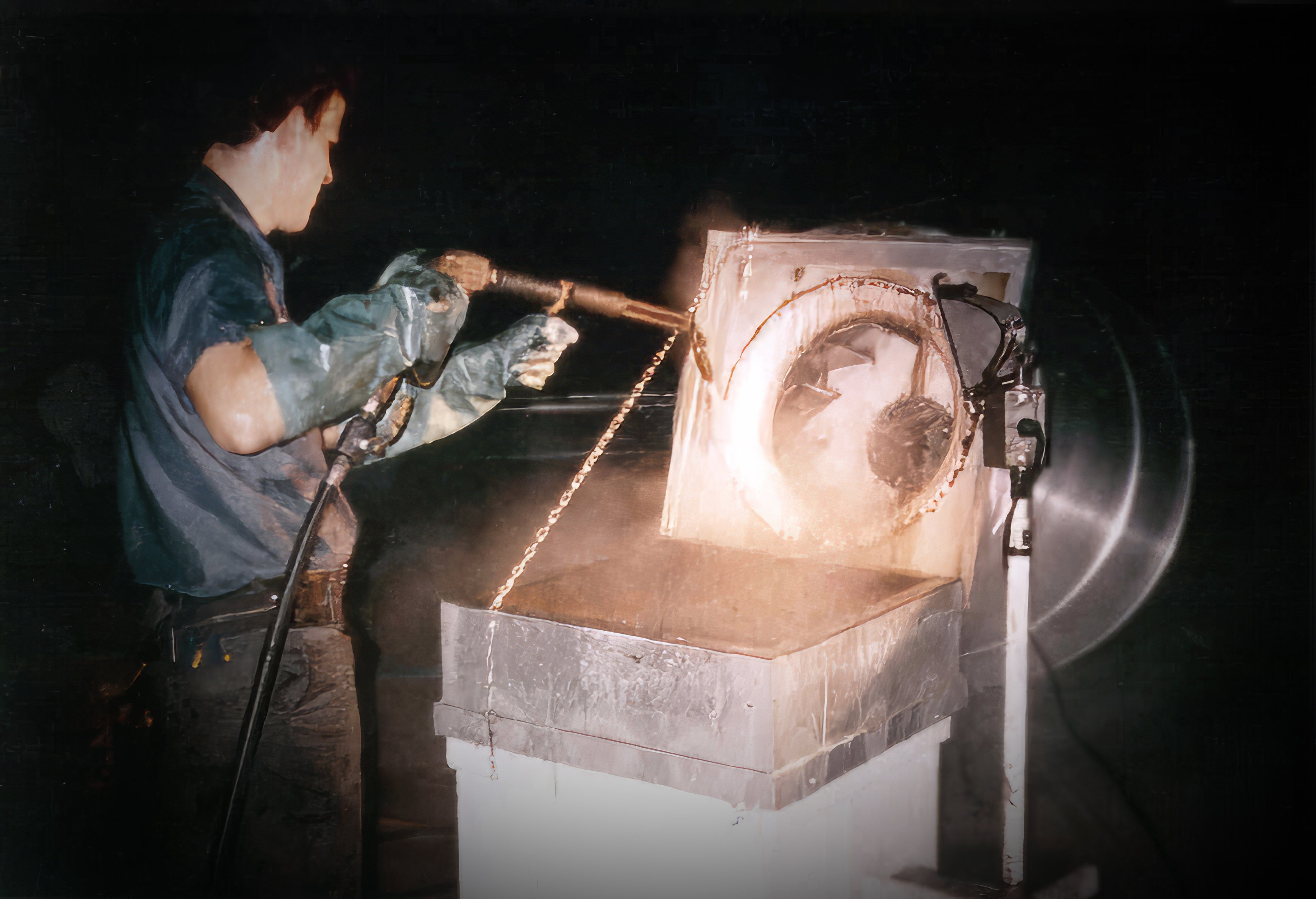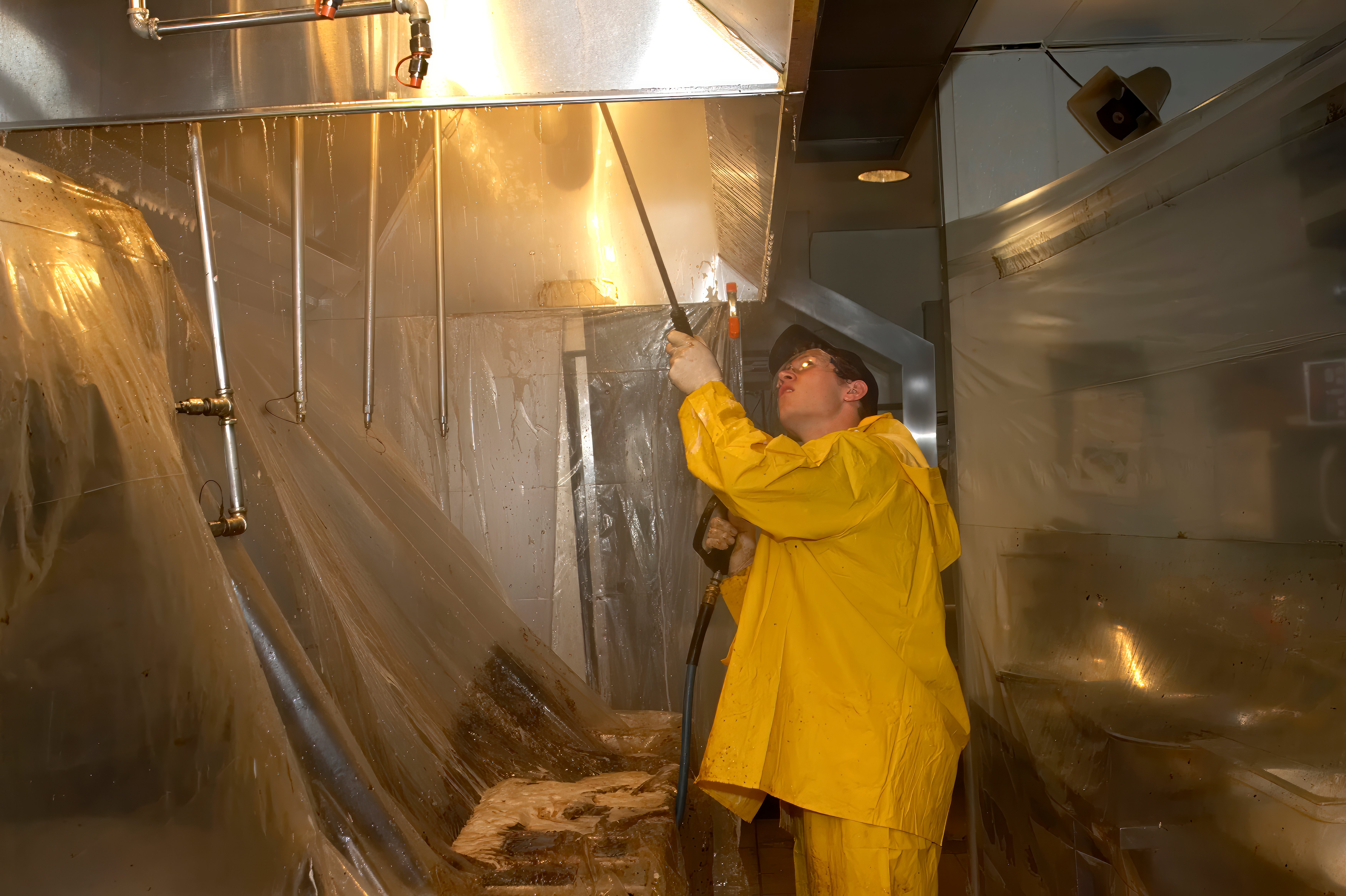
Did you know that, according to the National Fire Protection Association (NFPA), 22% of fires in commercial cooking operations were caused by a failure to clean cooking equipment? Tragically, from 2010 thru 2014, annual averages of three deaths, 110 injuries, and $165 million in property damage costs resulted from these fires.
With cooking equipment already factoring into three-out-of-five fires (61%) and 38% of direct property damage for these establishments, what steps can owners and managers take to prevent an overabundance of grease buildup from occurring, which can overwhelm the fire suppression system, causing a total loss?
One crucial step is to ensure that Kitchen Hood Exhaust Cleaning (KEC) is done frequently and thoroughly to meet the mandatory code requirements.
NFPA 96 - The Basis for the Fire Codes
For restaurants, NFPA 96, Standard for Ventilation Control and Fire Protection of Commercial Cooking Operations is the origin of the minimum criteria appearing in the fire codes. The minimum requirements for safety, the maximum allowable grease contamination, and the inspection and cleaning frequency of commercial kitchen ducts are established in NFPA 96.
What Do the Fire Codes Require?
NFPA 96 requires periodic inspections of commercial cooking and restaurant kitchen exhaust hoods and ductwork (see below).
NFPA 96, 12.4 Schedule of Inspection for Grease Buildup
- Systems serving solid fuel cooking operations: Monthly
- Systems serving high-volume cooking operations, such as 24-hour cooking, charbroiling, or wok cooking: Quarterly
- Systems serving moderate-volume cooking operations: Semi-Annually.
- Systems serving low-volume cooking operations, such as churches, day camps, seasonal businesses, or senior centers: Annually
In addition, the fire codes require the entire commercial cooking exhaust system to be cleaned if the grease and other combustible contaminants exceed the prescribed depths. That means hoods, filters, fans, and all associated horizontal and vertical ductwork must be thoroughly cleaned on a specified schedule to meet the code.
Liability and Fines
Not meeting the fire codes for hood and duct cleanliness puts restaurant owners at risk of hefty fines and being held liable for personal injury or death of employees or patrons, should a devastating fire occur. There is also the potential for loss of revenue due to business interruption and the unavoidable expense of property loss, like repairing and replacing any damaged equipment or fixing any damage to the building.

Final Thoughts
Grease buildup in a commercial kitchen hood exhaust system represents a significant fire hazard with potentially far-reaching consequences. From injuries and damage to the loss of life and property to fines and financial liabilities, ensuring that grease abatement in kitchen exhaust systems is performed frequently, thoroughly, and up-to-code should be a top priority for all owners and managers of commercial cooking operations.
But in the realm of new ventures, an undeniable focal point emerges: start-up costs, which in KEC, are exceptionally low. The essentials to embark on this journey comprise a truck, a pressure washer, a modest array of plastics, chemicals, and a handful of tools.
Unlike the intricate requirements of other Fire Protection Services, like Kitchen Suppression System Installation and Service, there is no arduous need for licensing, certifications, or intricate manufacturer distributorships. There exist an array of training schools readily accessible and poised to equip you.
An intriguing advantage presents itself—the ability to fortify your existing clientele by introducing an additional service - an additional service in which those who do it with professionalism and reliability stand out. Professionals who adhere to the highest standards can distinguish themselves and amass a loyal customer base. Where restaurant and hospitality managers have had bad experiences in the past with KEC companies, there is a significant opportunity to gain new business and a toe-hold for other services.
By seamlessly integrating KEC services with fire protection offerings, you can effectively tap into your current customer reservoir while providing a sensible and comprehensive solution. If you service Commercial Kitchen Systems but don’t offer hood/exhaust cleaning, then you may be leaving money on the table, not to mention putting your customer at risk of experiencing a deadly fire due to grease build-up.






